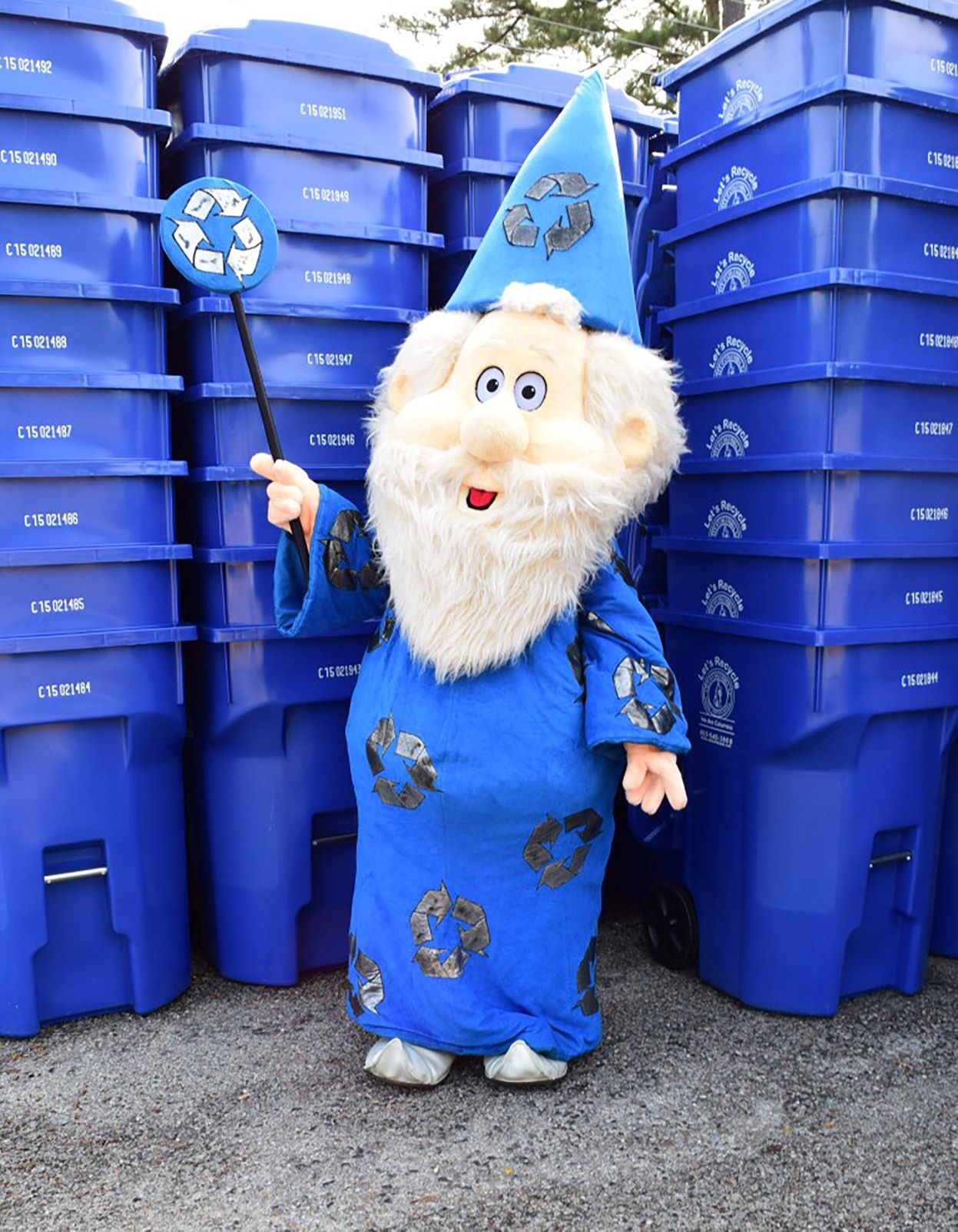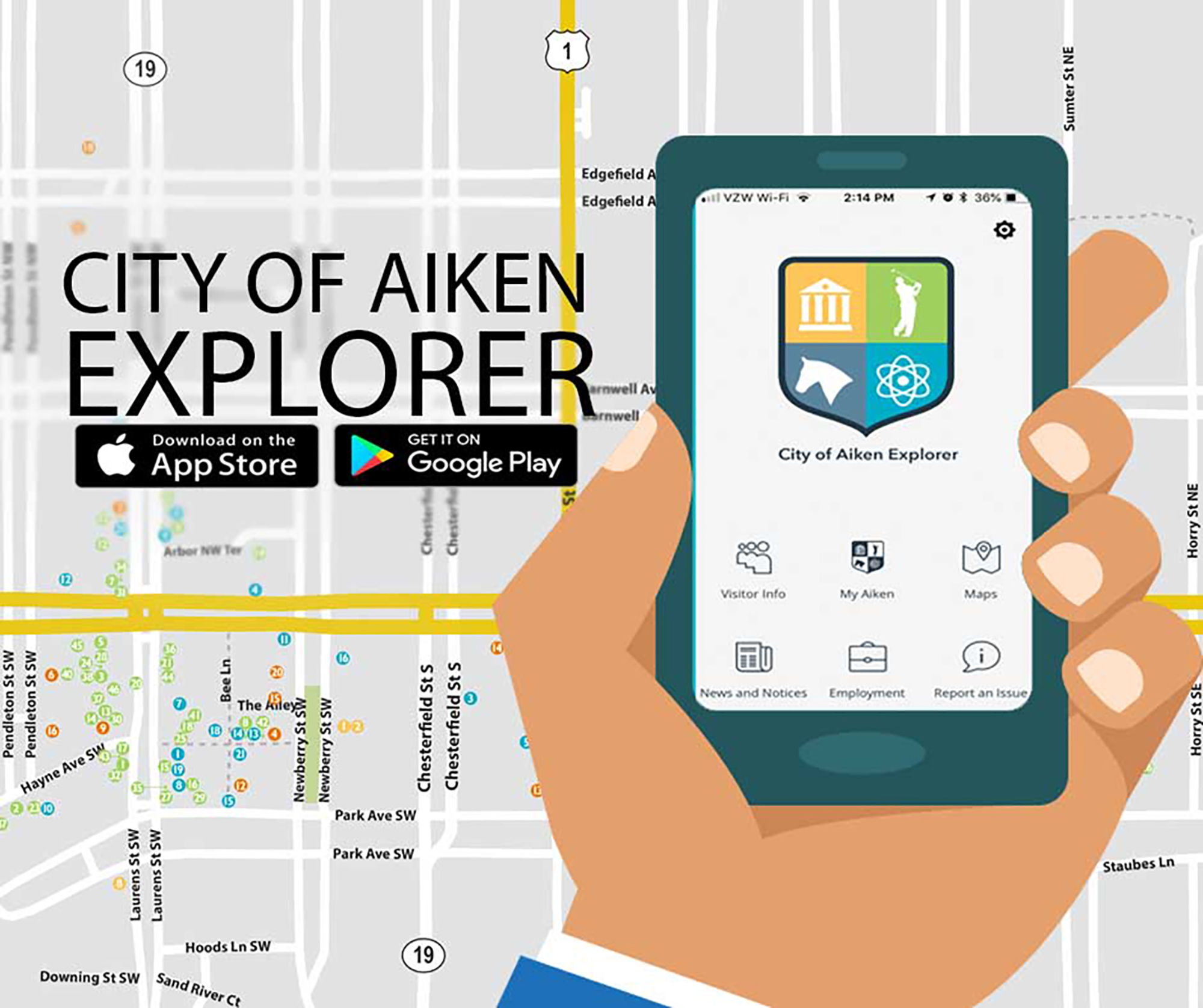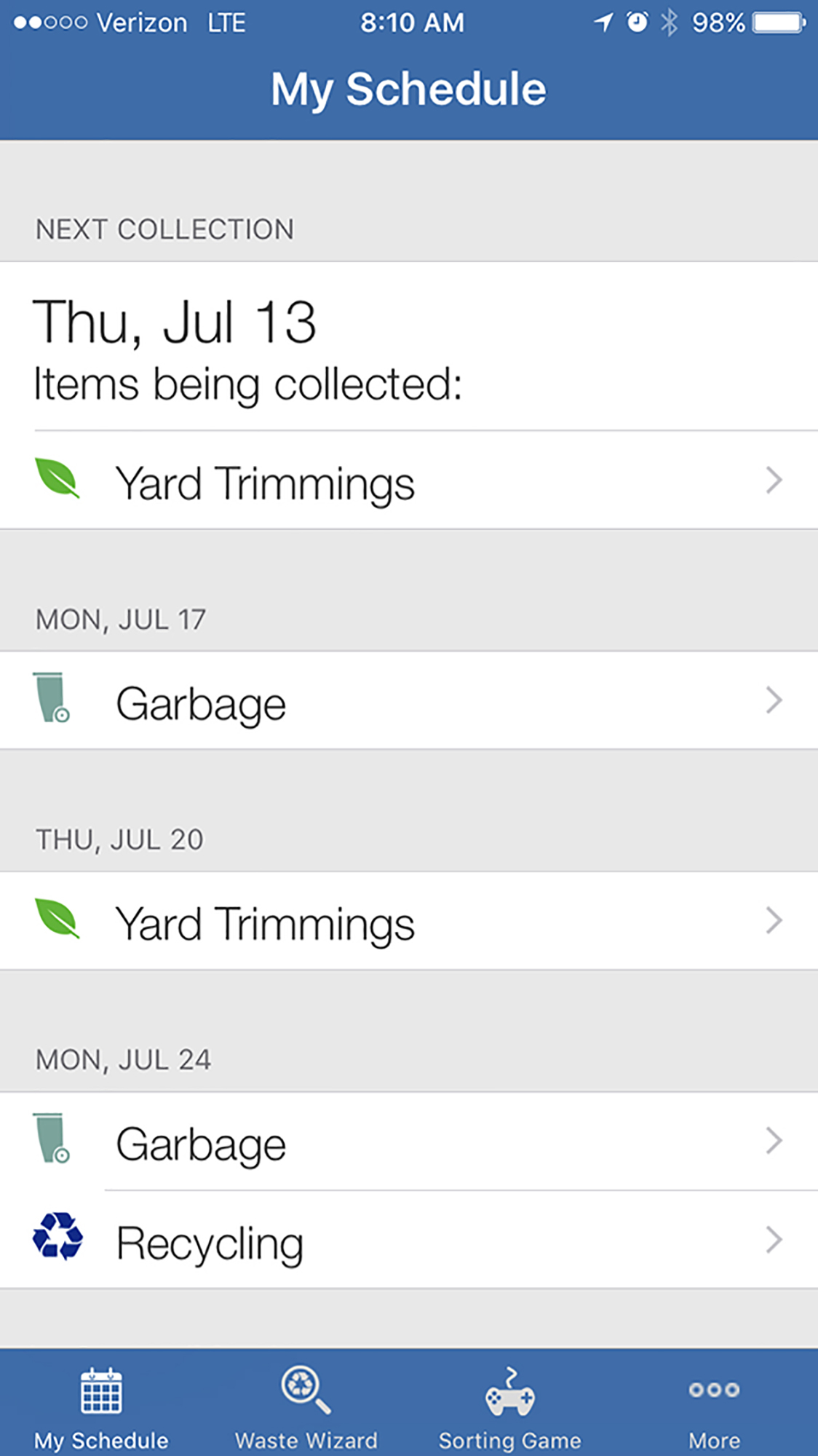Municipal Apps Drive Engagement and Communication
When the City of Columbia changed its curbside recycling program in 2015, leaders understood the importance of communicating with residents about the switch from bins to large roll carts. They also sensed a change in expectations — residents now wanted immediate access to information about recycling in the palm of their hands.

Columbia's Waste Wizard app explains pickup schedules
and how to dispose of items. Photo: City of Columbia.
Columbia introduced the Waste Wizard, a digital tool designed to answer residents' questions and make garbage and recycling collection easier. With the app, users can use a smartphone or tablet to find out when, where and what to recycle. They can have a little fun with it too, as the app offers a waste-sorting game.
"The tool is a notification system, search box, help center and game all wrapped into one," said Samantha H. Yager, Columbia's assistant superintendent of public works and solid waste. "With the app, we hoped to accomplish more engagement with the Solid Waste Division rather than people only engaging when there was an issue."
Columbia is not alone. The digital age has opened up a new frontier of communication tools for municipalities. Now there are apps allowing residents to do everything from reporting potholes and code violations to tracking down parks and recreation facilities.
In the City of Aiken, the Explorer app features an interactive map of parks, a way to read the latest notices from the city, a method to pay bills and a place to report water and sewer problems.

The City of Aiken Explorer app’s features include bill payments,
notifications and issue reporting. Photo: City of Aiken.
"Our app gives our residents and visitors another way to connect with our city. Whether you are interested in weekend events, wish to report a problem or directly contact staff, the app offers one seamless way to do that," said City Manager Stuart Bedenbaugh.
In the City of Conway, the Citizen Problem Reporter is a GIS-based app allowing users to share nonemergency problems, submit reports, and review and comment on reports submitted by other users. City staff members use the report to triage and manage problems reported by the general public, according to Taylor Newell, Conway's public information officer.
"We wanted a platform to reach our residents so that we could be the first to hear their problems and address them. If we're able to quickly address any concerns that are reported on the app, we're able to curb any negative comments in public input and to our councilmembers. This can also be an alternative to people putting their complaints on social media," Newell said. "The target audience is the young adult and teenage population. Our older population will call City Hall to voice concerns."
Cities have found various ways to pay for app startup and maintenance costs, including using grant money and relying on the expertise of city staff.
When Columbia changed to recycling roll carts, it received grant funding for its app from The Recycling Partnership, a national nonprofit, and the SC Department of Health and Environmental Control's Office of Recycling and Solid Waste Reduction. Since then, internal funding has covered the app's annual renewal fee. Two staff members help maintain the app, one handling submitted customer service requests and the assistant superintendent handling calendar updates, campaigns and service alerts, Yager said. About 14% of residents are registered on the app.
"There is always that initial fear and thought of, 'Will people actually use it?' That was the biggest challenge five years ago when we were introducing a lot of program changes. The Solid Waste Division built a strong relationship with our IT and GIS departments because it took all three departments to make this app a success," Yager said. "We needed strong address data from our GIS department to make sure users were getting the most accurate information. We also needed to make sure the app would integrate smoothly with our website."
Conway created its app in-house about two years ago with no additional funding necessary. The app has logged about 110 complaints and requests for service from residents, and the city plans to promote it more.
The app, Newell said, "took very little configuring on our part."
"Our IT department sets up all the email notifications, and then those emails are funneled to the appropriate department head to address the concern," Newell said. "On the IT side of the app, the biggest challenge was to get the email notifications up and running. We also have people send us complaints for Conway, Arkansas from time to time."
Aiken researched its needs for a mobile app and aligned those needs with its budget.
"Since the launch of the app we have about 3,000-plus registered accounts. App analytics help us see date ranges of app sessions, visits, device types, downloads, average time in app," said Gary Meadows, City of Aiken media specialist. "Technically the app is performing as expected. Visitor-wise, we are averaging over 1,000 visits a month."
As with all technology, it's important for cities to stay current and explore new ways to connect and use apps.
The goals for Columbia's app have changed since its introduction. While it still informs residents of their service days for trash and recycling, its new goals "revolve around lowering contamination and end 'wishful' recycling," Yager said. "The Waste Wizard and education campaigns are used to make sure residents are only recycling what we accept and managing our waste properly."

Columbia's Waste Wizard app explains pickup schedules
and how to dispose of items. Photo: City of Columbia.
Information from Columbia's app is compiled each month, offering analytics on all sorts of topics, such as the number of app downloads and the number of addresses that were searched.
Aiken is planning an update next January to perfect its geo-fencing for push notifications, which will allow the city to narrow notifications to a .05-square-mile radius, Meadows said.
"There are a million apps out there that can do a million different things. My best advice is do your research. When looking at apps or similar projects, make sure the app meets your goals and needs. Call references, download other cities' apps and play around. If you don't understand how to use the app, your residents probably won't either," Yager said. "My second piece of advice is to make sure that all departments involved are on board and understand what you are trying to accomplish. Teamwork makes the dream work."
